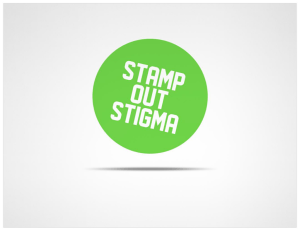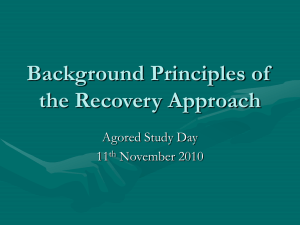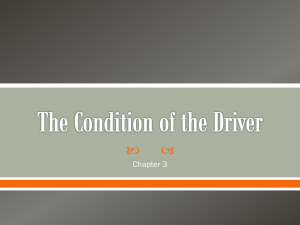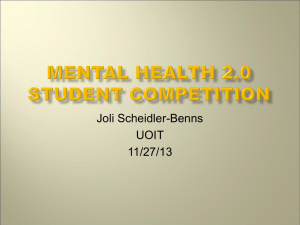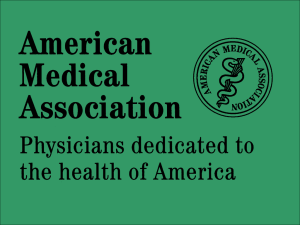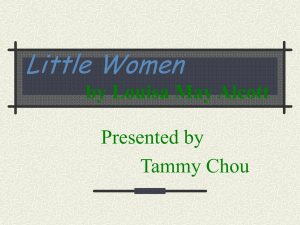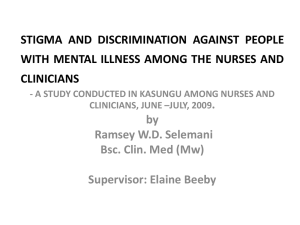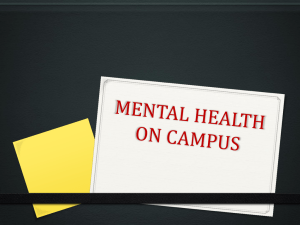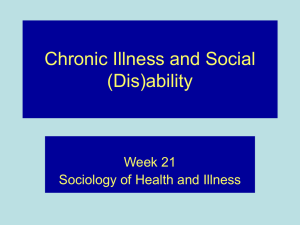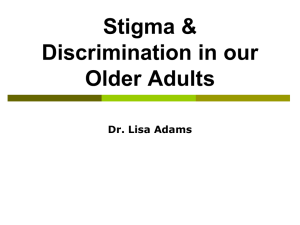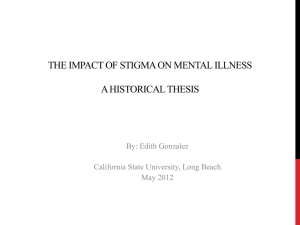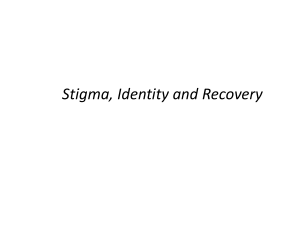MENTAL HEALTH 7
advertisement
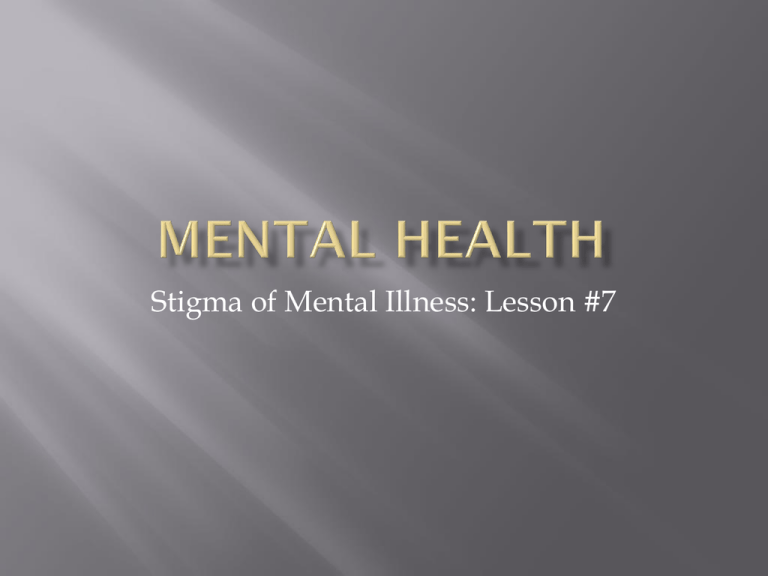
Stigma of Mental Illness: Lesson #7 1. What are some of the negative things you have heard about people with mental illness? 2. What are some of the positive things you have heard about people with mental illness? 3. What is a stigma? 4. Why do you think people with mental illness are stigmatized? 5. Can you think of any other health conditions or social issues that have been stigmatized? 6. What kinds of factors have contributed to changing public attitudes around some of these conditions or issues? 7. What do you think influences perceptions about mental illness? 8. How do you think stigma affects the lives of people with mental illness? A cluster of negative attitudes and beliefs that motivate the general public to fear, reject, avoid and discriminate against people with mental illness About disrespect The use of negative labels to identify a person living with mental illness A barrier FEAR OF STIGMA And the discrimination that comes with it discourages individuals and families from getting the help they need. Watch first two sections Providing information based on reliable research Effective advocacy and public education programs Proximity or direct contact with people with mental illness Programs that help people to become better integrated in the community Treatments and supports Learn more about mental illness Listen to people who have experienced mental illness Watch your language Respond to stigmatizing material in the media Speak up about stigma Talk openly about mental illness Demand change from elected representatives Provide support for organizations that fight stigma MENTAL HEALTH – the emotional and spiritual resilience that enables us to enjoy life and survive pain, disappointment, and sadness. It is a positive sense of well-being and an underlying belief in our own and other’s self worth Everyone – we all have mental health just like we all have physical health. People with mental illness also have mental health, just as people with a physical illness also have physical wellbeing MENTAL ILLNESS – a term that describes a variety of psychiatric (emotional, thinking and behavioural) problems that vary in intensity and duration, and may recur from time to time. Major mental illnesses include Anxiety, Mood, Eating, and Psychotic Disorders. Mental illnesses are diagnosable conditions that require medical treatment as well as other supports. MENTAL HEALTH PROBLEMS – refer to the more common struggles and adjustment difficulties that affect everybody from time to time. These tend to happen when people are going through difficult times in life (relationship ending, death, conflict in relations with family or friends, stresses at home, school or work). These are usually short term reactions to a particular stressor, painful event or illness. Watch the third part of video series on resources that can help www.cmha.ca/highschoolcurriculum Go to module 2/activity2: Mental Health and Mental Illness: The Common Basis / watch together and complete questions that go with it We are going to examine how brain functioning works in order to later examine some mental illnesses where brain functioning is not functioning properly
